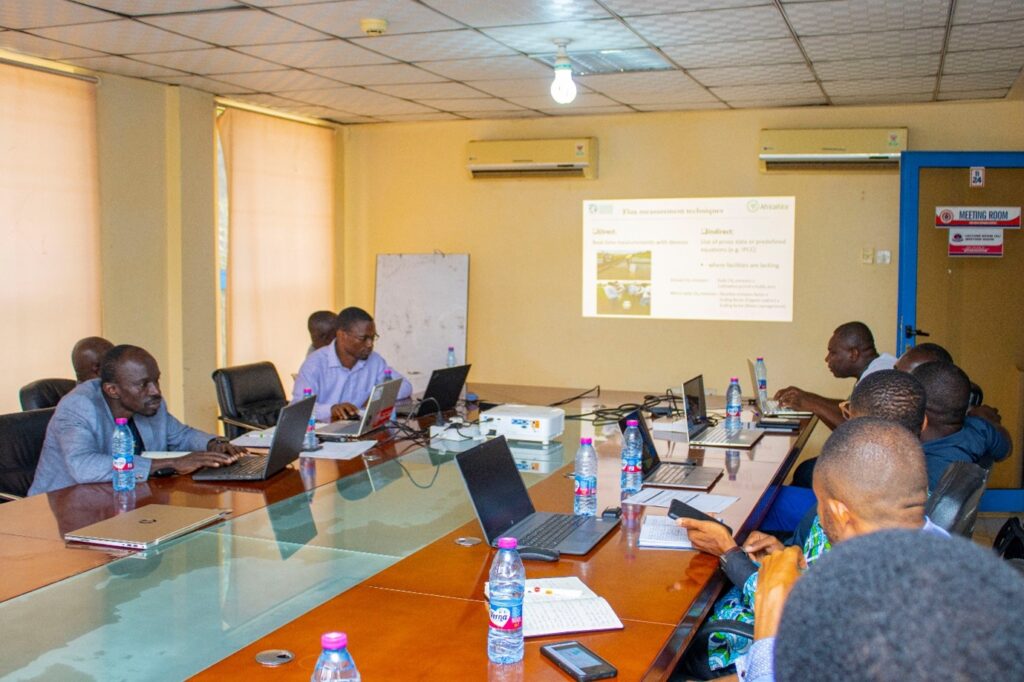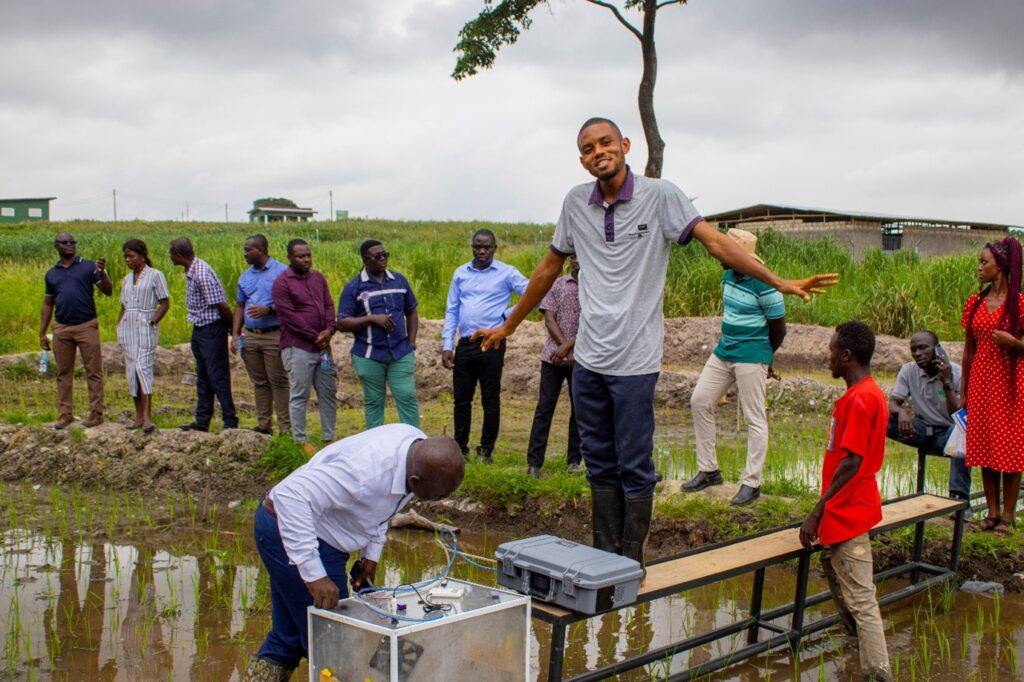ACE4ES and AfricaRice Build National Capacity on Super Pollutant Measurement and Climate-Smart Agriculture

The Agroecology and Circular Economy for Ecosystem Services (ACE4ES) Consortium, in collaboration with the Africa Rice Center (AfricaRice – CGIAR), Cote D’Ivoire, has successfully organized a high-level national training workshop on the measurement and analysis of Short-Lived Climate Pollutants (SLCPs) and agricultural greenhouse gas (GHG) emissions. The three-day event took place at the Council for Scientific and Industrial Research – Crops Research Institute (CSIR–CRI) from 15th to 17th July 2025, bringing together scientists, climate officers, researchers, and policy actors committed to strengthening Ghana’s agriculture-driven climate action.
The training forms part of ACE4ES’s broader efforts to bridge the science-policy gap in emissions monitoring, enhance MRV systems under Ghana’s Nationally Determined Contributions (NDCs), and promote low-emission, climate-resilient food systems.
Empowering National Action on Agricultural Emissions
The program featured in-field demonstrations and in-house technical sessions led by Dr. Kwaku Onwona-Hwesofour Asante (ACE4ES Principal Investigator), Dr. Charles Afriyie (CSIR–CRI Rice Team), and Dr. Eric Owusu Danquah (Maize Team), alongside international facilitator Dr. Maduabuchi Paul Iboko, GHG research expert from AfricaRice.
Over the course of the training, participants were introduced to:
- SLCP and GHG measurement protocols specific to rice, maize, and livestock systems
- Emissions data collection tools and calibration techniques
- Methods for analyzing methane, nitrous oxide, and black carbon data
- Integrated circular practices for mitigating super pollutants from farming systems
These skills directly support Ghana’s efforts to develop localized Tier 1 and Tier 2 emission factors—a critical gap identified by the Ministry of Food and Agriculture (MoFA) during recent NDC consultations.
Highlights from the Field and Lab


Key participants were scientists, researchers and policy stakeholders from the Council for Scientific and Industrial Research, Kwame Nkrumah University of Science and Technology (KNUST), Akenten Appiah Menka University of Skills Training and Entrepreneurial Development (AAMUSTED), Ministry of Food and Agriculture Crops Directorate, and the Animal Production Division of MOFA.
Participants visited ongoing ACE4ES experimental plots at the Multicultural Technology Park (MTP) where low-emission innovations such as biochar application, compost integration, and sustainable rice-livestock systems are under trial. Real-time gas sampling was conducted, followed by guided lab-based data interpretation using standard CGIAR protocols.
Policy Relevance and Forward Outlook
The training aligns with Ghana’s updated NDC 3.0 targets and reinforces the government’s call for robust emissions tracking in agriculture. It also responds to growing global attention on super pollutants and their disproportionate role in near-term climate warming.
Speaking at the event, Dr. Asante emphasized:
“This training not only empowers our national researchers with the right tools but also strengthens our credibility as a country to report agricultural emissions accurately and advocate for appropriate climate finance.”
Partners and Support
The training was hosted by CSIR–CRI under the ACE4ES Consortium, with support from the Climate and Clean Air Coalition (CCAC) and technical inputs from AfricaRice, a CGIAR research center specializing in rice-based systems and GHG mitigation.
The event marks a significant milestone in Ghana’s path toward climate-smart agriculture, agroecological innovation, and science-based policymaking.
Contact for More Information
ACE4ES Africa Secretariat
📧 info@ace4es.org
🌐 www.ace4es.org
OR
CSIR-Crops Research Institute,
https://cropsresearch.org/
